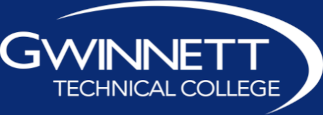| What is Early Childhood Care and Education? |
The early childhood care and education diploma is a sequence of courses designed to prepare students for careers in child care and related fields. Learning opportunities develop academic, technical, and professional knowledge and skills required for job acquisition, retention, and advancement. The program emphasizes a combination of early childhood care and education theory and practical application necessary for successful employment. Program graduates receive an early childhood care and education diploma. (Program Length: 5 Semesters Minimum) |
| Degree and Certificates |
- Early Childhood Care and Education, AAS
- Early Childhood Care and Education, diploma
- Child Development Specialist certificate
- Early Childhood Care and Education Basics certificate
- Early Childhood Exceptionalities certificate
- Early Childhood Program Administration certificate
|
| Prerequisites |
- FYES 1000
- Diploma level proficiency is required to take diploma level General Education courses.
- Diploma level proficiency in English, reading and math are required to take ECCE technical courses. Please refer to course descriptions in the online catalog for specific prerequisites.
|
| Length of Program |
Diploma: 5 semesters
52 Credit hours |
| Semester Program Begins |
Fall, spring, or summer |
| Application Process |
Applicants to the Early Childhood Care and Education program must meet all Admission requirements; complete an application and pay the application fee. Individuals apply to Gwinnett Technical College at GwinnettTech.edu, submit all transcripts from high school and previous college work, and take the ACCUPLACER test, if required. |
| Field Experiences |
ECCE 1121/ Practicum
The D. Scott Hudgens Jr Early Learning Center is a state of the art campus lab school, located on the Lawrenceville campus, where ECCE 1121 students engage with children and families for 75 hours throughout the semester. The students are mentored by highly qualified teachers at the lab school. Students at the Alpharetta North Fulton Campus will complete their practicum experience at a Bright Horizons early learning center.
|
| |
ECCE 2245 and ECCE 2246/ Internship
The internship experience for degree level students typically occurs in a local school system kindergarten or first grade classroom. The ECCE Program Director works in collaboration with the local school system to place the students and conduct on-site observations throughout the semester. Internship is a 12 credit hour course and may be taken concurrently, or over two semesters. Internship is only taken in the spring or fall semesters. Diploma level students complete their internship experience at the D. Scott Hudgens Jr. Early Learning Center.
|
| Practicum and Internship Requirements |
All Early Childhood Care and Education students are required to submit a completed state and federal criminal records background check prior to enrolling in ECCE 1121 , ECCE 2245 and ECCE 2246 . To be employed in child care centers, public schools, or Head Start centers, an individual must have a satisfactory criminal records check. Persons who have been convicted of a felony offense are not employable in the child care field. |
| Program Deadlines |
You may enter in the fall, spring, or summer semester. |
| For more information, contact |
Jennifer Roberts, program director, JRoberts@GwinnettTech.edu, 678.226.6740. |
| For admission and enrollment, contact: |
Enrollment Support Center in Building 100 at the Lawrenceville campus, or Building A at the Alpharetta-North Fulton campus, or email EducationTeam@GwinnettTech.edu. |
Quick Facts
(This data was compiled from the U.S. Bureau of Labor Statistics.)
| 2016 Median pay |
$25,410 per year |
| Entry level education |
Diploma |
| Number of jobs, 2016 |
1,308,100 |
Nature of the Work: Teacher assistants work under a lead teacher’s supervision to support the classroom learning environment and learning experiences.
Work Environment: Teacher assistants typically work in public and private early learning centers.
Bureau of Labor Statistics, U.S. Department of Labor, Occupational Outlook Handbook, 2016-17 Edition.
https://bls.gov.ooh/education-training-and-libary/preschool-teachers.htm.
|
